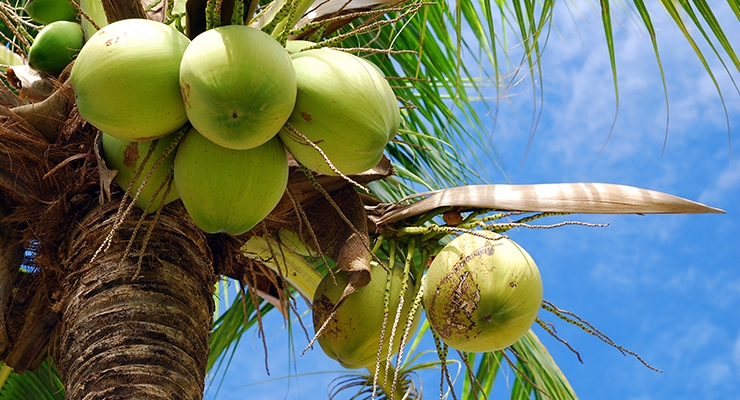09.10.19
The Coconut Coalition of the Americas (CCA) has launched an initiative to make it clear that coconuts are not tree nut allergens. CCA will spearhead the effort to request that FDA revise the FALCPA Guidance Document to remove coconut from the list of "tree nuts" identified as a major food allergen.
The Food Allergen Labeling Consumer Protection Act (FALCPA) was enacted to ensure that the labels of food products effectively inform consumers if they contain any of the eight major food allergens (milk, eggs, fish, Crustacean shellfish, tree nuts (e.g., pecans and walnuts), peanuts, wheat, and soybeans) that account for 90% of food allergies. Coconuts were not included in the law, but in 2006 FDA issued a guidance document on FALCPA with a list of what the agency considered to be "tree nuts" that included coconut (Cocos nucifera).
However, according to the American College of Allergy, Asthma and Immunology, coconut is not a botanical nut; it is classified as a fruit, even though FDA recognizes coconut as a tree nut. While allergic reactions to coconut have been documented, most people who are allergic to tree nuts can safely eat coconut.
"The FDA misclassified coconut, which is causing confusion for a lot of people because it shouldn't be classified with tree nuts," said CCA Executive Director Len Monheit. "Consumers with a tree nut allergy, but not a coconut allergy, are being deprived of this fruit. And, industry is being greatly impacted as contract manufacturers wanting to use coconut have to unnecessarily classify their facility as a tree nut facility when they're not."
As a 501(c)6 non-profit trade organization, CCA needs outside support for this initiative. Contributions may be made at CoconutCoaltion.org. The group said this initiative will launch once an initial sum of $25,000 toward the project has been raised.
The Food Allergen Labeling Consumer Protection Act (FALCPA) was enacted to ensure that the labels of food products effectively inform consumers if they contain any of the eight major food allergens (milk, eggs, fish, Crustacean shellfish, tree nuts (e.g., pecans and walnuts), peanuts, wheat, and soybeans) that account for 90% of food allergies. Coconuts were not included in the law, but in 2006 FDA issued a guidance document on FALCPA with a list of what the agency considered to be "tree nuts" that included coconut (Cocos nucifera).
However, according to the American College of Allergy, Asthma and Immunology, coconut is not a botanical nut; it is classified as a fruit, even though FDA recognizes coconut as a tree nut. While allergic reactions to coconut have been documented, most people who are allergic to tree nuts can safely eat coconut.
"The FDA misclassified coconut, which is causing confusion for a lot of people because it shouldn't be classified with tree nuts," said CCA Executive Director Len Monheit. "Consumers with a tree nut allergy, but not a coconut allergy, are being deprived of this fruit. And, industry is being greatly impacted as contract manufacturers wanting to use coconut have to unnecessarily classify their facility as a tree nut facility when they're not."
As a 501(c)6 non-profit trade organization, CCA needs outside support for this initiative. Contributions may be made at CoconutCoaltion.org. The group said this initiative will launch once an initial sum of $25,000 toward the project has been raised.

























